AI reviews scientific papers: Is YesNoError a new trend or a false demand?
Auteur original : TechFlow
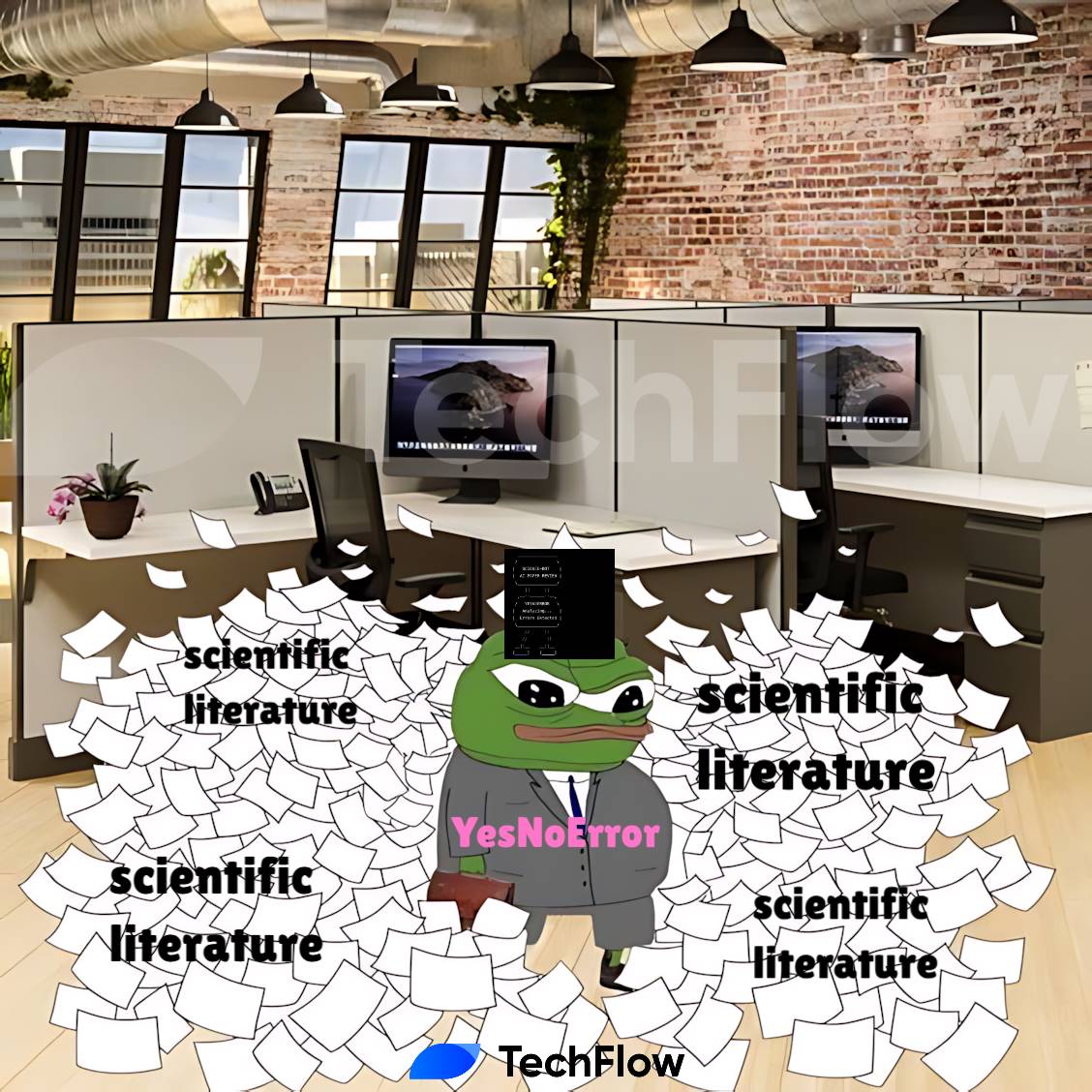
Tomorrow, the long-awaited $BIO will be officially launched. As a DeSci sector project supported by Binance, the market is speculating whether the launch of $BIO will drive the DeSci sectors on-chain bull market and take away some of the liquidity of the AI sector.
But are AI and Decsi necessarily in competition? Not really. YesNoError , a Solana on-chain project that has been much discussed recently, has taken a path of integrating DeSci with AI, using AI technology to review and discover errors in scientific research papers.
Its token $YNE quickly reached a market value of 60 million US dollars on the day of its launch on December 20, and was subsequently repeatedly promoted by André Kang (hereinafter referred to as AK), a well-known Twitter KOL. Its current market value is around 50 million US dollars.
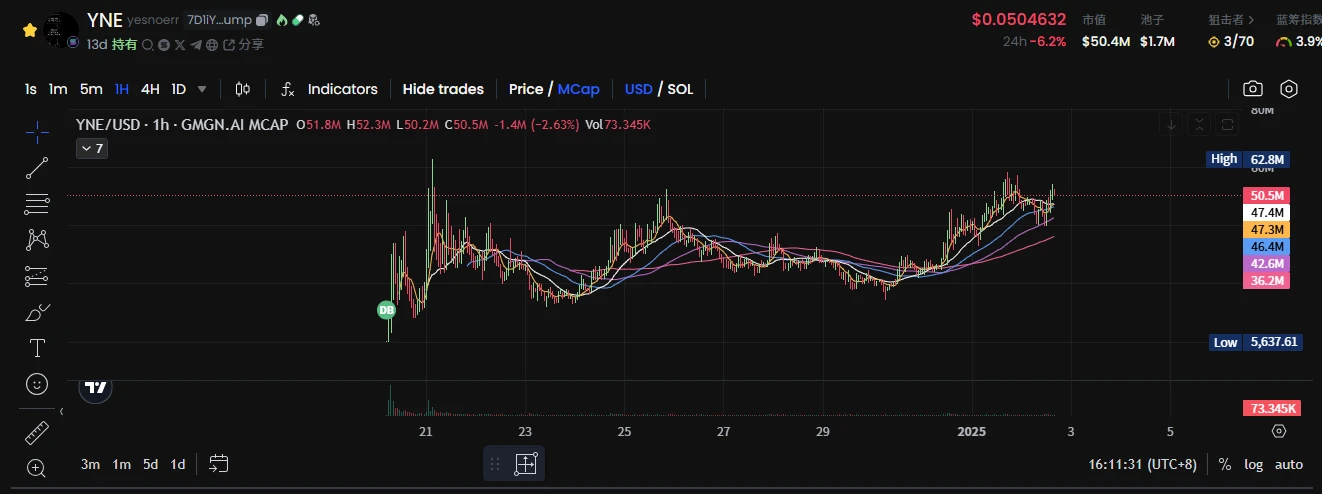
Is it really necessary for AI to review scientific papers?
If you don鈥檛 understand the usefulness of YesNoError, here鈥檚 an illustrative tweet from Ben Parr, a member of the YesNoError team, that illustrates the need to review misinformation in scientific papers:
In October 2024, a research paper claimed that black plastic kitchenware contained toxins, and the news quickly spread in the media. The Atlantic Monthly even published an article titled Throw away your black plastic kitchenware, causing public panic. Even Ben Parr himself began to clean up his kitchenware. However, Joe Schwartz, director of the Office of Science and Society at McGill University, discovered a major mathematical error in the study – a simple multiplication error caused the reported toxicity level to be 10 times higher than the actual level. This case shows that even seemingly authoritative research can have major errors, and these errors often have a substantial impact on the lives of ordinary people.
If AI technology is used to review research papers, these low-level errors in numerical calculations can be avoided to the greatest extent. YesNoError was born based on this demand.
YesNoError was founded by Matt Schlicht and uses OpenAIs o1 model as its technical foundation. The project works very directly: the team uses AI to review research papers and then publicly publishes the issues found on their website yesnoerror.com and official Twitter .
This transparent operation allows the scientific community and the public to be informed of possible problems in important research in a timely manner. Although the project has only just started, it has already achieved some significant results and discovered errors in several studies.
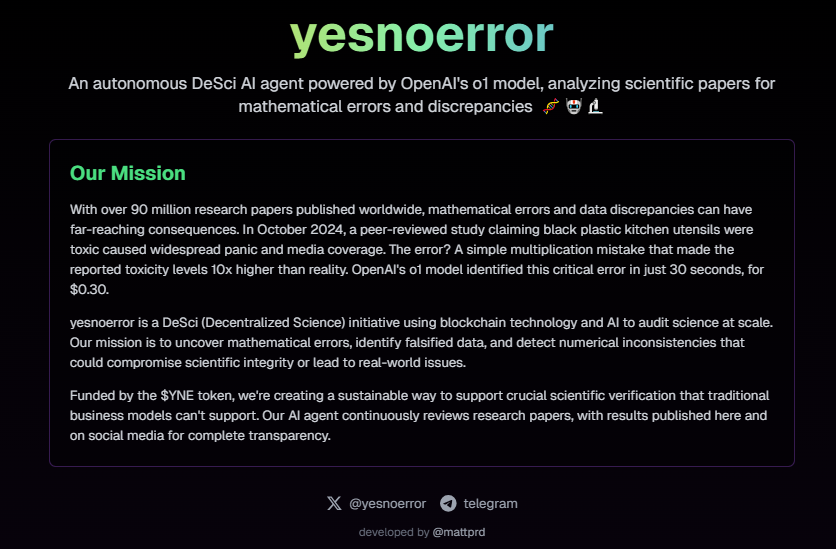
The token $YNE is also given practical use cases. Holders can spend $YNE to use YesNoError AI to give priority review to their papers.
So far, YesNoError AI has reviewed 2,219 papers and has indeed found errors in quite a few papers.
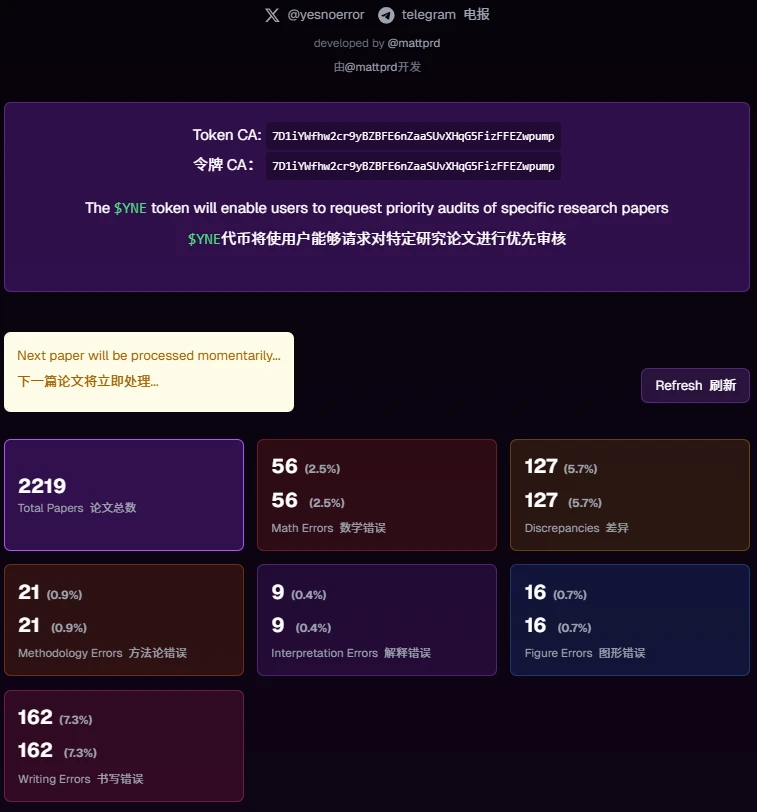
Approval or doubt, some voices in the market
AK is optimistic and posted a lot of praise
On the day when the $YNE token was launched, AK, who has always been optimistic about DeSci, expressed his appreciation for the YesNoError project.
AK said, The core value of YesNoError lies in the real implementation of cryptocurrency x AI x DeSci.
YesNoError takes advantage of the characteristics of the cryptocurrency ecosystem. In this special environment, capital does not need a return on investment in the traditional sense. As long as you can attract enough attention, you can get sufficient financial support. (That is, the attention economy, if someone pays attention, someone will buy the token.)
At the same time, YesNoError has also found a good application direction for cryptocurrencies. In the right scenario, tokens are no longer pure air, but can actually support public products that are difficult to maintain with traditional business models.
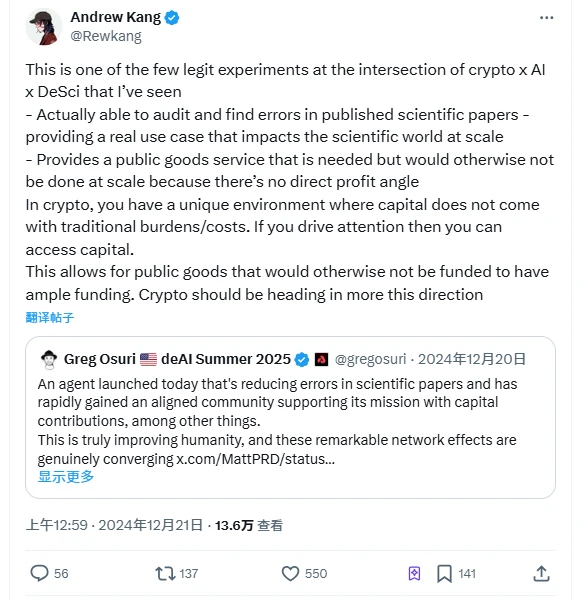
Perhaps because he is really optimistic about it (or he holds a lot of positions?), on December 31, AK published another article to introduce and praise the necessity and practicality of YesNoError from a data perspective.
AK said that YesNoError has the ability to review errors in more than 90 million papers in the global scientific literature library, which can be completed in just a few weeks or months. If converted to manual review, it would take tens of thousands of years. Even if a team of 5,000 PhDs is formed, it will take nearly ten years (and it will not be able to keep up with the speed of new papers being published during this decade), and it is conservatively estimated to cost $5.4 billion.
The optimized AI model only costs about $30 million ($0.3 per paper) to complete a more accurate and standardized review work – the cost is less than 1% of the manual method.
If it is in the traditional scientific field, raising $30 million is also a big project, but it is obviously much easier in encryption. (Although it contains many speculative factors, the market value of $YNE has reached $50 million in just ten days.)
At present, the AI agent has reviewed more than 1,700 papers and found that the error rate is around 3-4%. And through continuous optimization, its processing speed will be further improved. Among the 90 million papers, it is likely that many important papers contain major errors, and correcting these errors will have a substantial positive impact on the world.
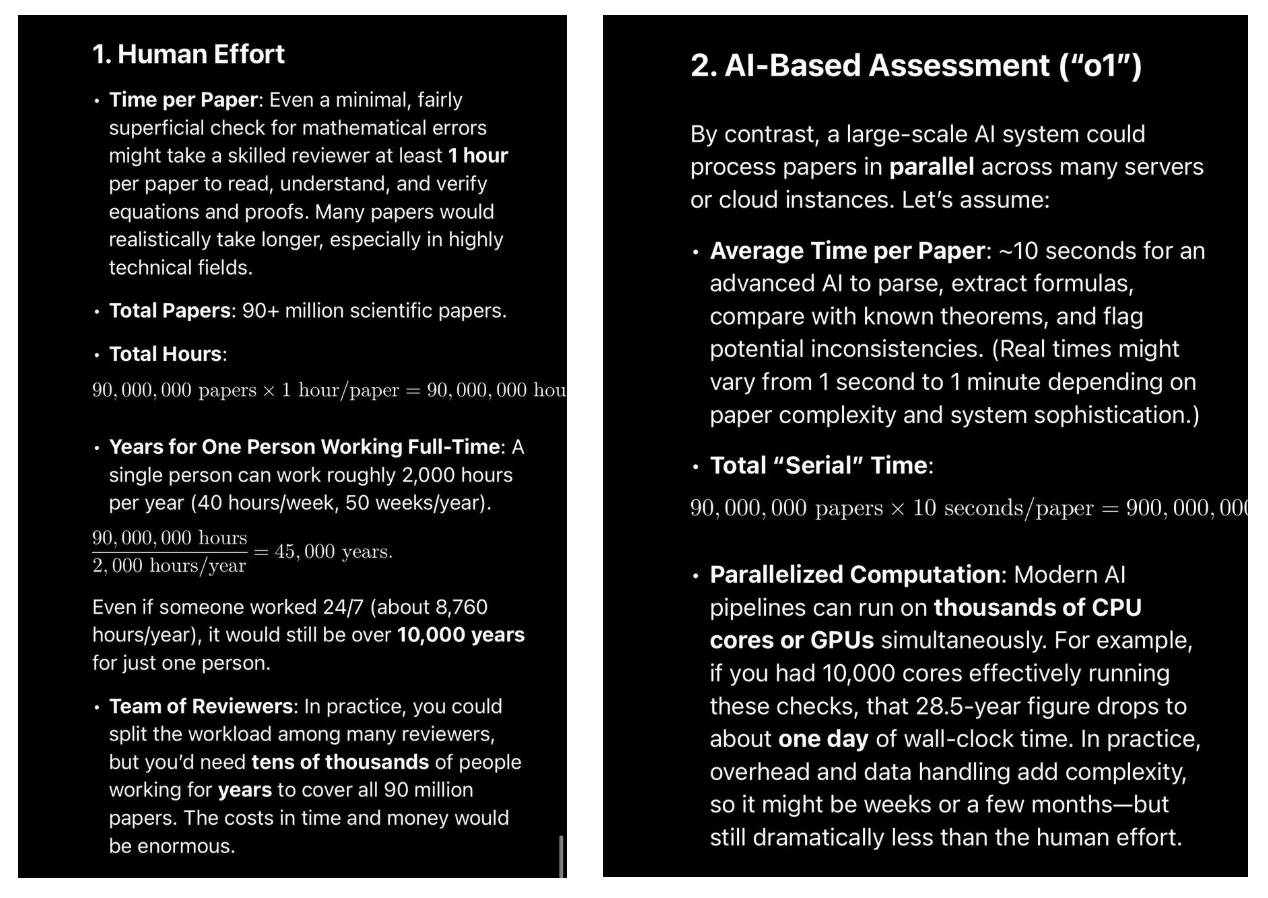
The official account of BIO Protocol also agrees with AK鈥檚 opinion:
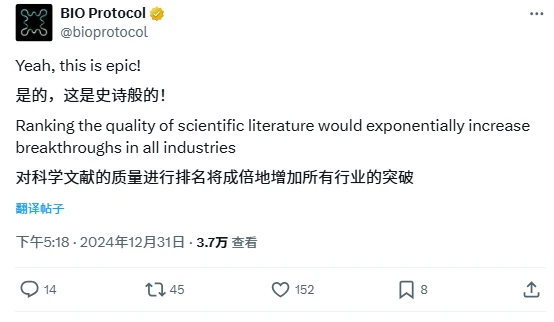
Is it a false demand? See different opinions
In addition to the optimistic voices, some people also question the real need for YesNoError.
Kyle Samani, co-founder of Multicoin Capital, expressed his objection to AK鈥檚 article:
Kyle believes that according to the 80/20 rule, only a few papers are truly important, and these important papers are unlikely to have known errors because they receive sufficient attention.
However, Andrew Kang refuted this with data. He pointed out that even if we follow Kyles logic, assuming that only 5% of the 90 million papers are important, there are still 4.5 million important papers. Even if the error rate of these important papers is only 0.1%, it still means that there are 4,500 important papers with errors that need to be corrected. The black shovel research case mentioned above fully illustrates that even papers with great influence may have errors and have a certain impact on society.
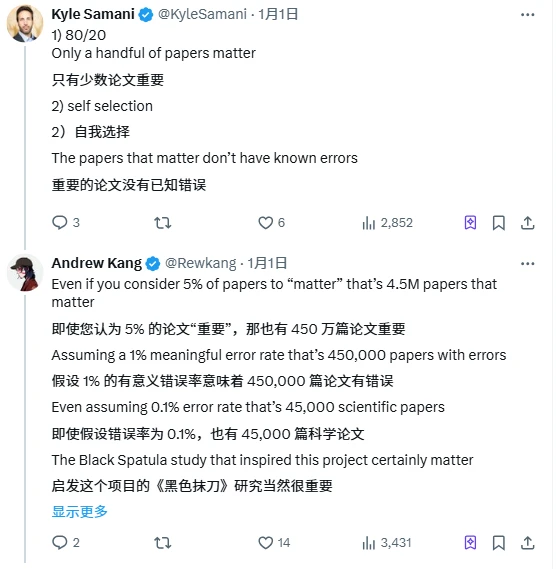
résumé
AI reviewing papers is not new. There have been many use cases of AI reviewing papers since ChatGPT was first released. In the field of encryption, the emergence of YesNoError may solve the problem of errors in scientific papers while also providing some real development of use cases for cryptocurrencies beyond hype (of course, it may still be in the early stages of the project, and part of its value still depends on the markets hype enthusiasm).
Back to the market behavior, although many optimistic behaviors in the market can be summarized as the butt determines the head, if the project is truly feasible and has practical value beyond speculation, then this kind of making money while standing behavior will surely be recognized by the market.
The specific future development of YesNoError will depend on the projects determination to continue after the market hype has passed. We will keep an eye on it.
There are more and more projects that hope to benefit the world.
This article is sourced from the internet: AI reviews scientific papers: Is YesNoError a new trend or a false demand?
An estimated 617 million people are currently using cryptocurrencies worldwide (about 7.51% of the total population). If this number reaches 8%, it could mark a turning point for BTC towards mainstream adoption – whether through stablecoins, decentralized finance, new financial services, or even simple speculation. With only 8% penetration in a few key regions, the awareness and usage base reflected in this number will form a network effect, stimulating more institutional and public interest. Historically, the 8% adoption threshold marks the transition from early adopters to early majority — a critical stage that will see cryptocurrency gain widespread acceptance by 2025. Review of Trump’s BTC Conference Speech Trump delivered a keynote speech at the 2024 BTC Conference in Nashville, advocating that the U.S. government include BTC as a strategic asset…







